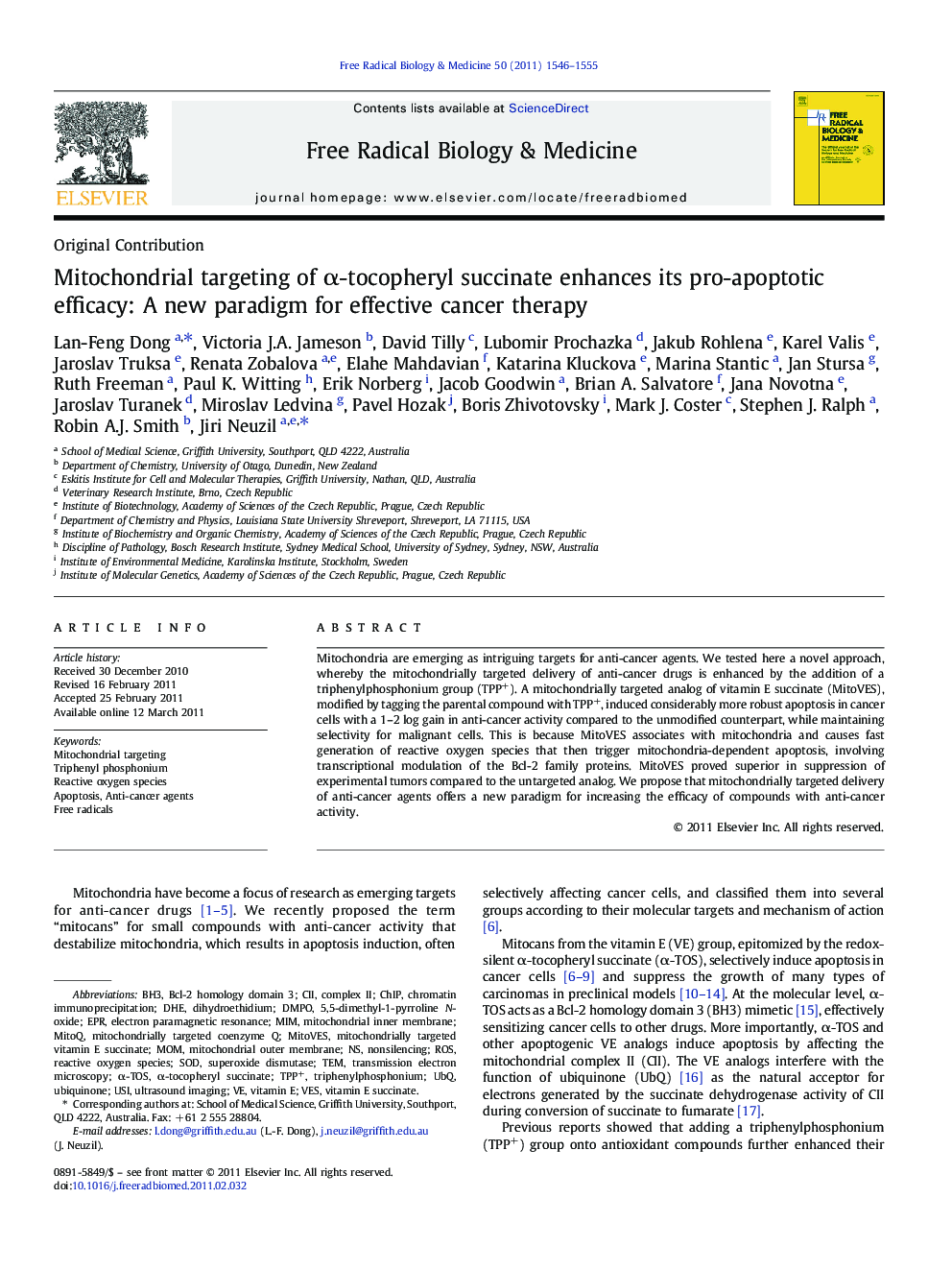| Article ID | Journal | Published Year | Pages | File Type |
|---|---|---|---|---|
| 10738656 | Free Radical Biology and Medicine | 2011 | 10 Pages |
Abstract
Mitochondria are emerging as intriguing targets for anti-cancer agents. We tested here a novel approach, whereby the mitochondrially targeted delivery of anti-cancer drugs is enhanced by the addition of a triphenylphosphonium group (TPP+). A mitochondrially targeted analog of vitamin E succinate (MitoVES), modified by tagging the parental compound with TPP+, induced considerably more robust apoptosis in cancer cells with a 1-2 log gain in anti-cancer activity compared to the unmodified counterpart, while maintaining selectivity for malignant cells. This is because MitoVES associates with mitochondria and causes fast generation of reactive oxygen species that then trigger mitochondria-dependent apoptosis, involving transcriptional modulation of the Bcl-2 family proteins. MitoVES proved superior in suppression of experimental tumors compared to the untargeted analog. We propose that mitochondrially targeted delivery of anti-cancer agents offers a new paradigm for increasing the efficacy of compounds with anti-cancer activity.
Keywords
VESDMPOCIIMitoQubiquinoneα-TOSBH3UBQBcl-2 homology domain 35,5-dimethyl-1-pyrroline N-oxideROSTPP+α-tocopheryl succinateUSIchromatin immunoprecipitationTemTriphenylphosphoniumElectron paramagnetic resonanceEPRUltrasound imagingApoptosisdihydroethidiumFree radicalsSODSuperoxide dismutaseAnti-cancer agentsmitochondrial outer membraneMitochondrial inner membraneMoMComplex IIMIMTransmission electron microscopyMitochondrial targetingDHEVitamin EVitamin E succinateCHiPReactive oxygen species
Related Topics
Life Sciences
Biochemistry, Genetics and Molecular Biology
Ageing
Authors
Lan-Feng Dong, Victoria J.A. Jameson, David Tilly, Lubomir Prochazka, Jakub Rohlena, Karel Valis, Jaroslav Truksa, Renata Zobalova, Elahe Mahdavian, Katarina Kluckova, Marina Stantic, Jan Stursa, Ruth Freeman, Paul K. Witting, Erik Norberg,
